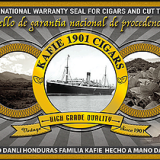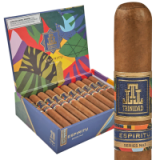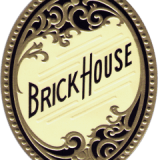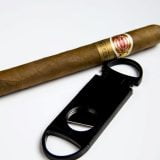The mystery of aging cigars is one that has captivated cigar aficionados for centuries. Aging cigars can be a tricky process, and unlocking the secrets to doing it correctly is essential for those who want to get the most out of their smokes.
Contents:
Aging cigars involves storing them in an environment with specific humidity and temperature levels, while also being mindful of other factors such as ventilation and light exposure. While all this may sound intimidating at first, having the right knowledge on hand can make it much easier.
Understanding how to age your cigars properly can take time and experience – but once you have perfected it, you will be able to enjoy its rich flavor profiles that are only available after months or even years in storage. Aged tobacco leaves contain complex chemical compounds which provide unique aromas and flavors; something that cannot be achieved with fresh leaves alone.
Different types of tobaccos require different aging processes due to their varying chemical compositions. It’s important for smokers to understand these differences so they know exactly how each type should be aged in order to achieve optimal results – from subtle nuances in flavor profile, down to color changes within the leaf itself.
Another factor affecting cigar aging is wrapper leaf selection – certain wrappers need more time than others before they reach peak maturity; some require up five years or more. Knowing which type of wrapper works best for your particular tastes can greatly enhance your overall smoking experience too!
By understanding the science behind cigar aging, smokers gain insight into why certain techniques work better than others when trying to unlock the full potential of a fine smoke. The beauty lies not just in achieving maximum taste satisfaction – but also in enjoying every moment along the way as each puff reveals new depths of flavor previously unheard-of.
Aging: The Basics
Aging cigars is a fascinating practice that can add depth and complexity to your smoking experience. But before you start aging, it’s important to understand the basics of the process.
First off, what is aging? Aging is when tobacco leaves are stored in an environment with specific conditions – including temperature and humidity – for a period of time until they reach their desired flavor profile. The length of this time frame depends on several factors such as the type of tobacco used, storage conditions, and personal preference.
When it comes to cigar aging specifically, there are many benefits that come with proper storage. Most notably, aged cigars will tend to have smoother flavors due to fermentation processes taking place over time; this includes better blending between different tobaccos and improved aroma quality. Aged cigars may be more pleasant to smoke due to increased combustion consistency throughout each puff; this means less harshness or acridity in taste compared to younger smokes. Properly-aged cigars will also have a longer shelf life if stored correctly – making them ideal for long-term investments or collection purposes.
Cigar Storage Strategies
To unlock the secrets of aging cigars, understanding cigar storage strategies is key. A common misconception is that it’s best to store your cigars in a humidor at all times. However, this may not be the ideal situation for long-term cigar storage. The optimal humidity and temperature levels vary based on where you are storing them.
In a dry climate or during the winter months, it can be beneficial to keep your cigars stored in an airtight container with a humidifying device like an Ultrasonic Humidifier or Boveda Packs included to help regulate moisture levels. This will ensure that they don’t dry out prematurely while still providing adequate protection from extreme temperatures and fluctuations in humidity. If possible, try to find a cool place away from direct sunlight as well since UV rays can cause damage over time.
For more extended periods of storage (over 1 year), some people prefer to age their cigars without any sort of humidity control system in place by keeping them in an unsealed container such as a cedar box or wooden drawer lined with Spanish cedar sheets – both materials are known for their ability to absorb moisture and release it gradually when needed; however, if done improperly this could lead to mold growth so careful monitoring is important here too. It’s also worth noting that these types of containers should only be used for longer term aging purposes because without consistent humidity control shorter durations may result in undesirable results due to drastic changes caused by fluctuating environmental conditions outside the box/drawer itself.
The Science Behind Aging Cigars
Cigars are an incredibly complex product that require science and art to create. Aging cigars is a process of allowing them to develop their flavor, aroma, and strength over time. Understanding the science behind aging cigars is essential for any aficionado looking to unlock its secrets.
The key elements in aging cigars are humidity and temperature control. The optimal environment for aging a cigar is between 65-70% relative humidity (RH) with temperatures of around 70 degrees Fahrenheit. This helps keep the tobacco moist while maintaining proper fermentation and curing processes, allowing it to age gracefully without becoming too dry or damaged from exposure to extreme conditions.
Proper storage containers also play a role in preserving the quality of an aged cigar. Humidors are specially designed boxes that use cedar wood interiors lined with Spanish cedar shelves for storing cigars at the ideal RH level and temperature range mentioned above, providing maximum protection from outside elements such as light, air, heat, and humidity fluctuations which can damage your collection over time if not stored correctly. With these simple steps in place you can ensure your prized possessions reach peak maturity when ready to be enjoyed by discerning connoisseurs everywhere.
Perfecting the Art of Aging
Perfecting the art of aging cigars is a skill that takes time, patience, and dedication to acquire. A cigar enthusiast who knows how to properly store and age their prized cigars can reap the benefits of an aged smoke without having to wait years for it. The trick is understanding how long it takes for certain types of tobacco to reach peak flavor, as well as knowing when your cigar has been aged enough.
Humidity levels are one of the most important aspects of aging cigars. When kept in a humidor at 65-70% humidity level, tobacco will begin developing its full flavor within just weeks or months depending on the type of cigar you have stored away. Many cigar aficionados find that keeping multiple humidors with different humidity levels helps them better control the aging process so they can get exactly what they want out of their smokes.
Temperature plays a huge role in perfecting the art of aging cigars too; heat accelerates evaporation which speeds up fermentation process and produces more pronounced flavors quicker than usual. It’s best not to keep your collection in an environment where temperatures fluctuate greatly from day-to-day or even hour-to-hour as this could cause inconsistent results while trying to age your precious stogies. With proper care and monitoring, smokers everywhere can unlock all the secrets that come with a perfectly aged smoke.
Discovering Unique Flavors
Aging cigars can be a tricky business. It’s not as simple as putting them away and forgetting about them for months or years until you decide to smoke them again. Aging requires proper storage and an understanding of how different types of tobacco change over time, unlocking a wealth of unique flavors.
By aging your cigars properly, you can experience the full potential that each cigar has to offer. It’s important to keep in mind that certain tobaccos will develop differently when exposed to air or other elements, so it’s essential to be mindful of their environment while they age. In general, milder tobaccos tend to mellow out with age while more intense blends become richer and fuller-bodied. If stored correctly, these changes are gradual but noticeable over time – allowing connoisseurs the opportunity to savor all the nuances present in every puff.
Humidors are great tools for keeping your cigars at optimal humidity levels while they age; however, there is no one-size-fits-all solution when it comes to storing aged cigars since each type needs its own conditions depending on its flavor profile and blend composition. Experimenting with different storage methods may help you discover new flavors from your favorite smokes as well as learn which ones work best for any particular brand or variety. By taking advantage of this process, smokers can enjoy a plethora of complex aromas and tastes from their aged collection without having to go through the hassle of buying multiple packs.
Humidity and Temperature Control
When it comes to aging cigars, one of the most important aspects is controlling humidity and temperature. Without proper maintenance, a cigar can quickly dry out or become moldy. To ensure your cigars are properly stored and aged, you must maintain a consistent environment with the correct levels of humidity and temperature.
The ideal conditions for storing cigars involve an average relative humidity (RH) level of 68-70%, combined with temperatures ranging from 64-74 degrees Fahrenheit. If either of these two factors are off even slightly, this can cause rapid degradation in flavor and quality. Therefore, having a reliable system to monitor and adjust both RH levels as well as temperature is paramount when it comes to aging your cigars properly over time.
There are many tools on the market designed specifically for monitoring humidors, such as digital hygrometers that measure RH levels inside a humidor or wine refrigerator systems that have built-in temperature control capabilities. By investing in one of these devices, you will be able to rest easy knowing that your prized smokes will be kept at optimal storage conditions no matter what Mother Nature throws at them outside.
Unlocking the Secrets of Aging Cigars
When it comes to cigar smoking, the aging process is a key factor in unlocking its full potential. Aging cigars allows them to develop complex flavors and aromas that can be hard to replicate without proper aging. This makes the process of aging cigars an important part of enjoying their flavor.
The art of aging cigars has been around for centuries, but there are still some secrets that can help you unlock their full potential. One such secret is storing them properly. To ensure your cigars age properly, you should store them in a cool, dry place away from direct sunlight and humidity. It’s also important to keep the temperature consistent; too much fluctuation can damage your cigar’s delicate wrapper leaf and affect its taste. You should turn your cigars every few weeks or so to make sure all sides are exposed evenly over time.
Another way to maximize the flavor of aged cigars is by ensuring they have enough humidity while they’re stored; too little will result in dried out tobacco leaves which will lead to an unpleasant experience when smoking them later on down the line. Cigar humidors are designed specifically for this purpose and come with pre-calibrated hygrometers that measure relative humidity levels inside so you know just how much moisture is being retained within each one at any given time. With this tool in hand, it becomes easier than ever before to get the most out of your aged smokes.
Maximizing Your Investment
Maximizing your investment in aging cigars requires more than just time. To ensure that the cigar you’ve carefully chosen and set aside for aging produces the best results, it’s important to store them correctly. The ideal environment should be kept between 65-70°F with relative humidity of 70%. If possible, find a room or space that is temperature controlled and dedicated solely to aging your cigars.
You will also want to keep a close eye on how often you open and shut the humidor door as this can cause fluctuations in temperature and humidity levels which could ruin your prized collection. A digital hygrometer can help monitor both temperature and humidity levels so you are able to make adjustments accordingly if needed. Avoid storing other items such as food or drinks near your cigar collection since these can emit odors that may affect flavor profiles over time.
In addition to monitoring conditions inside the humidor, you will want to inspect each individual cigar periodically throughout its maturation process for signs of mold or damage due to improper storage conditions. This includes discoloration, cracking, splitting wrappers or soft spots on the body which would indicate that they need further attention from an expert before they are ready for smoking.











